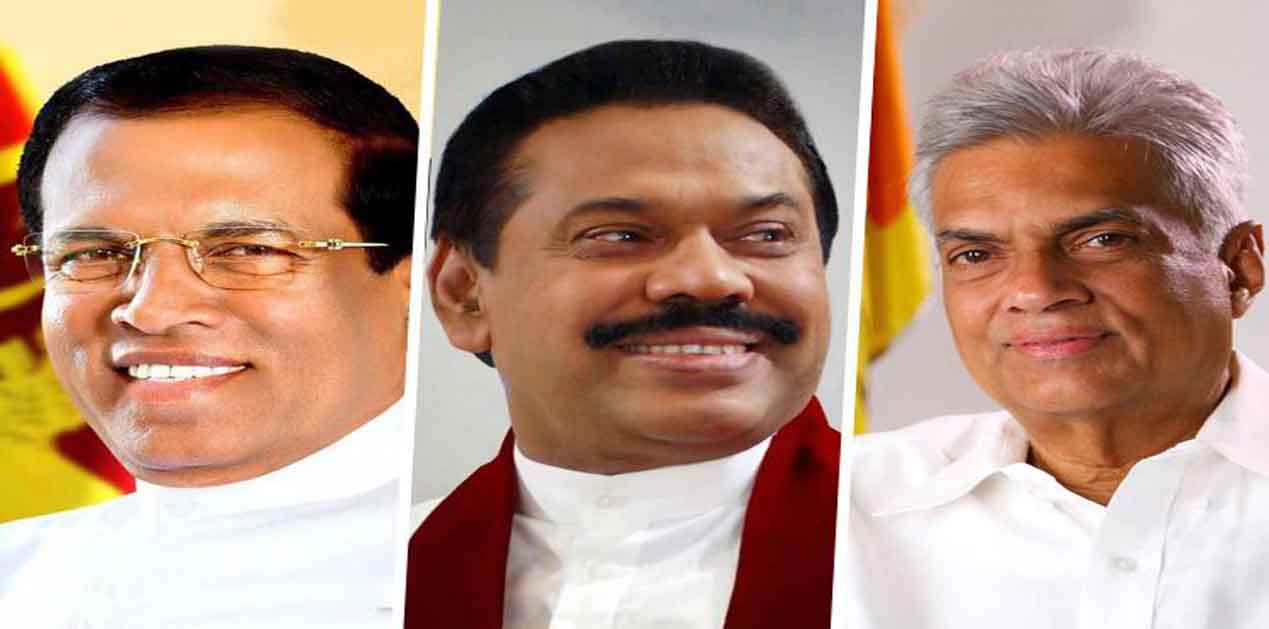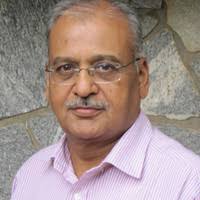The political crisis in Sri Lanka has receded following the landmark judgment of the Supreme Court (Dec 14, 2018) restoring the status of the Parliament as it existed on October 24, 2018 before the crisis erupted. The unanimous decision of the 7-member bench of the Supreme Court (SC) is unprecedented in the history of the country. It not only declared as illegal the presidential proclamation dissolving the parliament but more importantly, reset the political compass of the country. The SC decision also clearly affirmed its position that it would not remain a silent bystander to actions designed to misuse the constitution for narrow personal gains.
The immediate fallout of the SC decision was the resignation of Mahinda Rajapaksa (MR) from the position of Prime Minister and restoration of Ranil Wickremesinghe (RW) to the office from which he had been dismissed, without reason or cause, eight weeks ago. RW re-assumed prime ministerial office on Dec 16, 2018 after the SC’s historic decision cleared the way in his favor. MR had resigned from that office the previous day. The change of guard was important for the resolution of the political crisis and stalemate. However, the SC judgment has far greater implications for the future in terms of redefining the powers of the presidency in critical matters, such as removal of the prime minister from office and dissolving the parliament. The episode has sent strong enough message for placing curbs on extant powers vested in Executive Presidency and eventually move towards a parliamentary form of governance. In the weeks and months ahead, this issue will come in to sharper political focus. The restored PM has his task cut out and the outcome will depend on how deftly he handles this delicate issue. The response of other centers of political powers, namely President Maitripala Sirisena (MS) and former President MR, to the new developments will need attention. The ball is now in the parliament’s court to debate the matter and consider stringent checks and balances to prevent recurrences and address infirmities in the 19th Amendment.
RW has received a life-line in the form of the SC judgment, and has emerged stronger from the crisis. The short-lived political drama saw the ruling United National Party (UNP) rally behind its leader, RW, at all times, during the crisis, in parliament and outside despite many efforts of the opposition to wrest control by way of defections and other means. The UNP also had the solid support of the Tamil National Alliance (TNA) and the Sri Lanka Muslim Congress (SLMC) in addition to others. In fact, the UNP may have an upper hand today in electoral calculations given that the Singhala Buddhist vote is divided between MR’s party, the Sri Lanka Podujana Peramuna (SLPP) and the Sri Lanka Freedom Party (SLFP) led by MS. There will be more than one contender for the Singhala vote, which could immensely benefit both UNP and RW who can control the narrative before over-due provincial council elections, as also the run up to the presidential elections due towards end of 2019. There is the possibility of more SLFP members joining the ruling combine of RW. An uneasy relationship with MS will dictate the future plans and programs of his government for next twelve months, when the present parliament enters its penultimate months. The cohabitation with MS will obviously be watched with considerable interest. It will be recalled that RW had a testy relationship with then President Chandrika Bandarnaike Kumaratunga (CBK) in the period 2001-2004. RW has to navigate carefully to control the narrative so as to ensure that he is able to achieve his political objectives.
On the other hand, MR will have to go back to the drawing board to determine his roadmap ahead and make strenuous efforts to regain lost ground to remain relevant in national politics. Despite the recent setback, he continues to be a very popular national leader and remains a force to contend with. There is a section of public opinion that feels that MR will continue to be a major political player in Sri Lanka. A former political colleague of MR, while analyzing MR future political plans, feels that MR would need to repair relations with India, adding that several initiatives undertaken by MR to improve relations with India, as also the ethnic issues, have been glossed over without giving him any credit. The decision to build the memorial for the Indian Peace Keeping Force (IPKF) in Colombo, next to the Sri Lanka War Memorial is one such example. It is no-doubt a shining example of bilateral relations. MR had also commissioned detailed studies on the Indian Panchayati Raj system and set up a committee to look at a tri-lingual policy. There is also the view that his proximity to the powerful Buddhist clergy has the potential to bring solution to the factors destabilizing the ethnic situation.
MR’s well-wishers do concede that strengthening of Chinese equation during MR’s presidency was a matter of utmost concern for Indian strategic planners especially the development of the port at Hambantota and the international airport not far from it. There were other areas too where China was given preferential treatment as the cost of traditional relations with India. MR ill-advisedly flaunted this equation publicly whereas his SLFP predecessors were subtler and more circumspect in their exposition of Sri Lanka-India-China relations. This hiatus has to be repaired sooner than later. Chinese policy towards Sri Lanka has to be seen more through the prism of its strategic vision for the region and beyond and it is unlikely to dilute it for any reason.
As far as President MS is concerned, he has done no favors to his future political career in this entire episode. He can count on limited support from his own party but this could be a dwindling number. He would surely have to contend with a more assertive PM and Parliament and most analysts believe, he may have to reconcile himself to a single term in office. In a sense, at this point I time, RW seems to be the only credible candidate for the next presidential elections, though MR always retains the capacity to bounce back.
Political priorities aside, RW’s immediate task would be restoring the economic health of the country. He will be expected to come up with an innovative budget in Jan 2019. He has to address major issues such as shoring up the national currency, inflation, unemployment, stagnant GDP, deal with adverse balance of payments situation and restore confidence of foreign investors. Added to the above, RW has several administrative decisions to deal with mainly relating to law and order issues, appointment of heads of various commissions that have remained headless for several months and ensuring maintenance of communal and ethnic harmony in the country. RW is a keen student of history and has lessons to learn. It will be recalled that he lost the 2004 elections due to economic mismanagement. He will need to strategize on dealing with several issues that caused souring of relations with MS. The TNA and other ethnic minority groups that stood by him will expect fulfillment of their wish list. There is perceptible public anger against corruption, corrupt politicians and lack of accountability and absence of probity in public life. Any failure of the incumbent on this front or lack of traction towards it may spell serious trouble to the government and RW in particular. He would be careful not to miss red flags in this context.
RW requires an economic safety net from friendly countries and more so from the west for development. The western countries who are looking at Sri Lanka through a narrow political prism are committing mistakes, like what they are doing in Myanmar, by imposing unfair policies and practices on Colombo. In Myanmar, they are pushing Daw Ang San Suu Kyi (DASSK) into the corner for her failure to mobilize influence with the powerful military on major issues. There is an urgent need for western countries to objectively reassess their position on Sri Lanka and to come up plans and programs capable of providing it with range of financial and economic assistance, Delays will be counter-productive and will provide greater opportunities for continued Chinese intervention.
As far as India is concerned, it has welcomed the end of the political impasse in Sri Lanka after eight weeks of studied silence. India will now expect return to a more mature and profitable bilateral relations including speedy removal of roadblocks. From a national interest perspective, India will hope that the ruling National Democratic Front (NDF) announced by RW will remain trouble-free and address major issues without rocking the boat. Importantly there is a need to build a consensus on several issues, such as the devolution of powers to the provinces in line with the 13th Amendment to the satisfaction of all stakeholders. This issue has been lost in the din and noise of political machinations and become very emotive in text and tenor. RW may have the platform for creating conditions for discussions and action on it. Hopefully there will be some forward movement on it sooner than later. It will be a coalition compulsion for him amidst high expectations from his Tamil supporters and other minorities.
The return of RW to office augurs well for India given his close association with Indian leadership, in the past and currently. The political changes in Maldives has restored the balance in its foreign relations with India. Maldives has received a major economic package from India few days ago. Sri Lanka, like Myanmar, requires a major infusion of economic aid and financial packages to return to a rapid development trajectory. The role of international financial institutions and regional bodies is important in this context. India has invested wisely in Sri Lanka and has to calibrate its efforts to ensure that Sri Lanka remains top priority in its neighborhood policy.
(PM Heblikar is Managing Trustee, Institute of Contemporary Studies Bangalore and a former Special Secretary, Government of India).
Image Source: https://www.thenewsminute.com/sites/default/files/styles/news_detail/public/Sirisena_Rajapaksa_Wickremesinghe_750_0.jpg?itok=-yp9Uubf











Post new comment